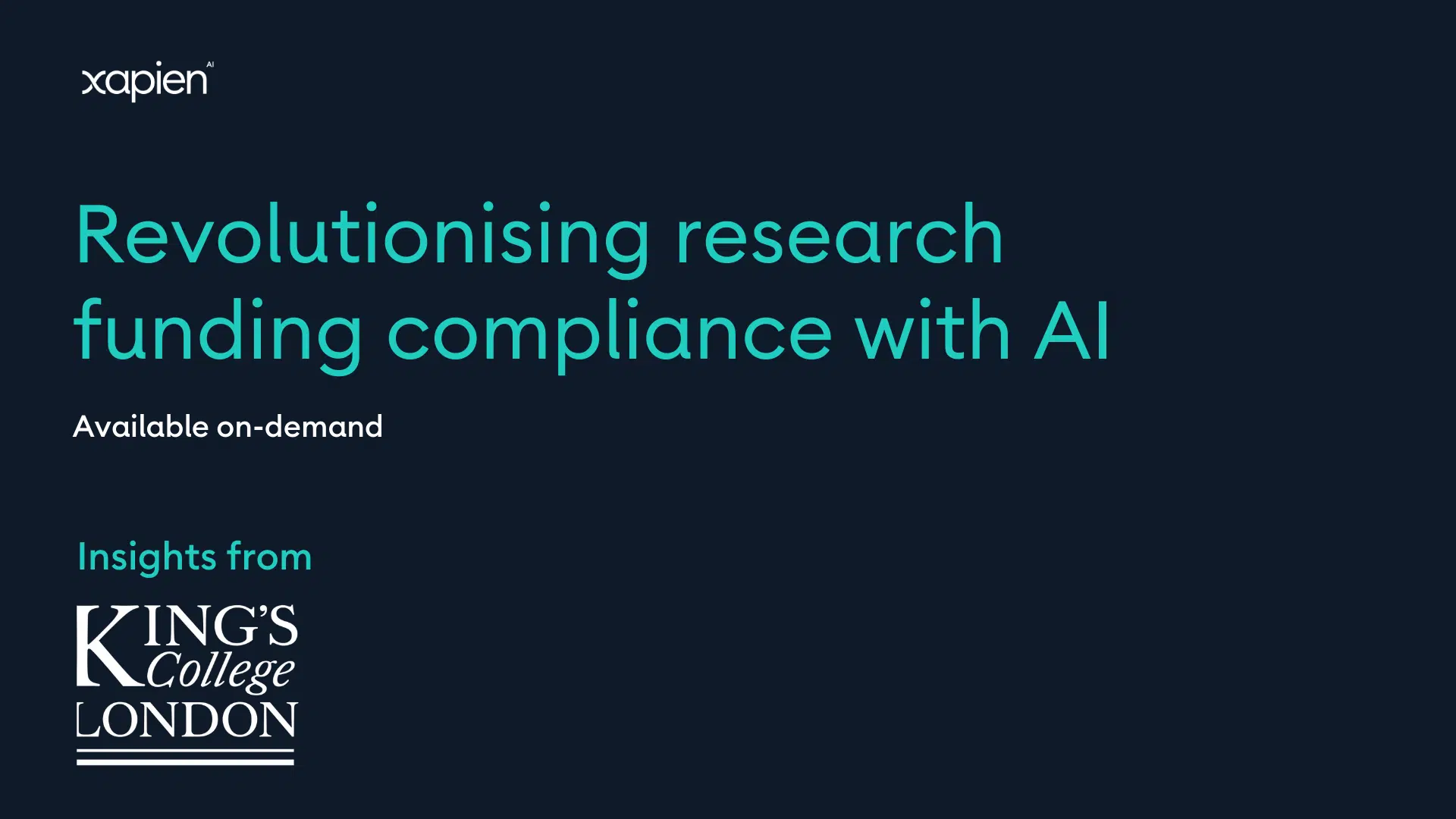Revolutionising research funding compliance with AI: Insights from King’s College London
With increasing regulatory scrutiny, research institutions must adopt more comprehensive due diligence processes to meet funding compliance requirements. Join us for an exclusive webinar with King’s College London (KCL) and Xapien to explore how AI is transforming the way universities handle annual review processes and monitor ongoing research partnerships.
Register to watch this on-demand recording

Webinar summary
Andy discussed how UKRI has enhanced its approach to risk awareness, adopting a more mitigative protocol to minimise threats. This includes new principles that require more extensive due diligence, particularly when working with global partners in regions like Africa, Southern Asia, and South America. The initiative aims to protect research integrity, intellectual property, and the reputation of both the UK and institutions like King’s College London. Compliance with UKRI’s international due diligence guidelines is now essential, which includes assessing sustainable deliverables and evaluating organisations based on risk.
Before adopting Xapien, King’s College London used various tools, but these lacked the depth and current data that Xapien offers. Xapien’s ability to assess both individuals and organisations in detail—offering real-time data—has proven invaluable, especially when dealing with international organisations and providing insights into overseas directors. This tool saves time, reduces errors, and offers both direct and indirect information that helps deepen investigations when needed.
Andy also highlighted the importance of ensuring national security and safeguarding research, especially given the current concerns about geopolitical issues, such as connections to countries involved in conflicts. Xapien has made it easier for King’s College to provide evidence that due diligence has been performed, ensuring there are no risks or connectivity concerns. Their work spans various regions, including challenging jurisdictions like China, and involves assessing sanctions exposure, corporate structure, and key individuals.
In addition, the university’s collaboration agreements now include compliance with the UK’s National Security and Investment Act, a requirement that’s becoming more common globally. For smaller teams, Andy emphasised the importance of conducting due diligence at the application stage, before submitting proposals, to identify any potential issues early on. Xapien helps provide this initial assurance, allowing for more in-depth assessments later during the award stage when more detailed checks are required. Andy also mentioned that while UKRI’s guidance suggests due diligence reviews every three years, they conduct annual reviews to stay ahead of any risks or changes in the organisations they're working with.